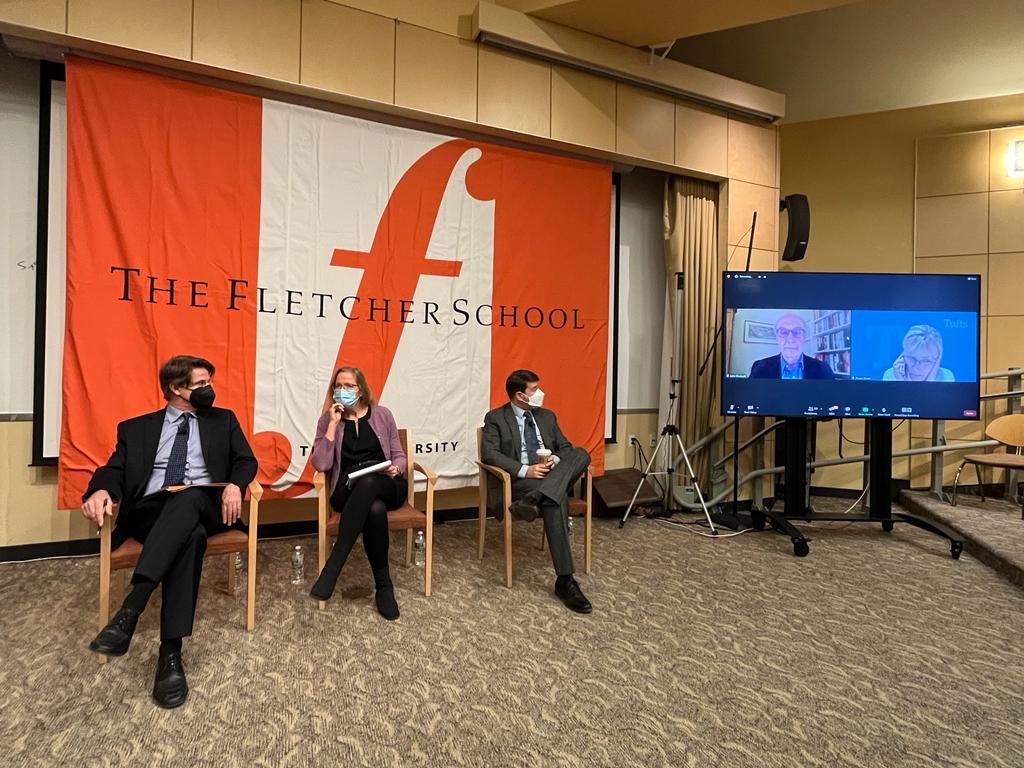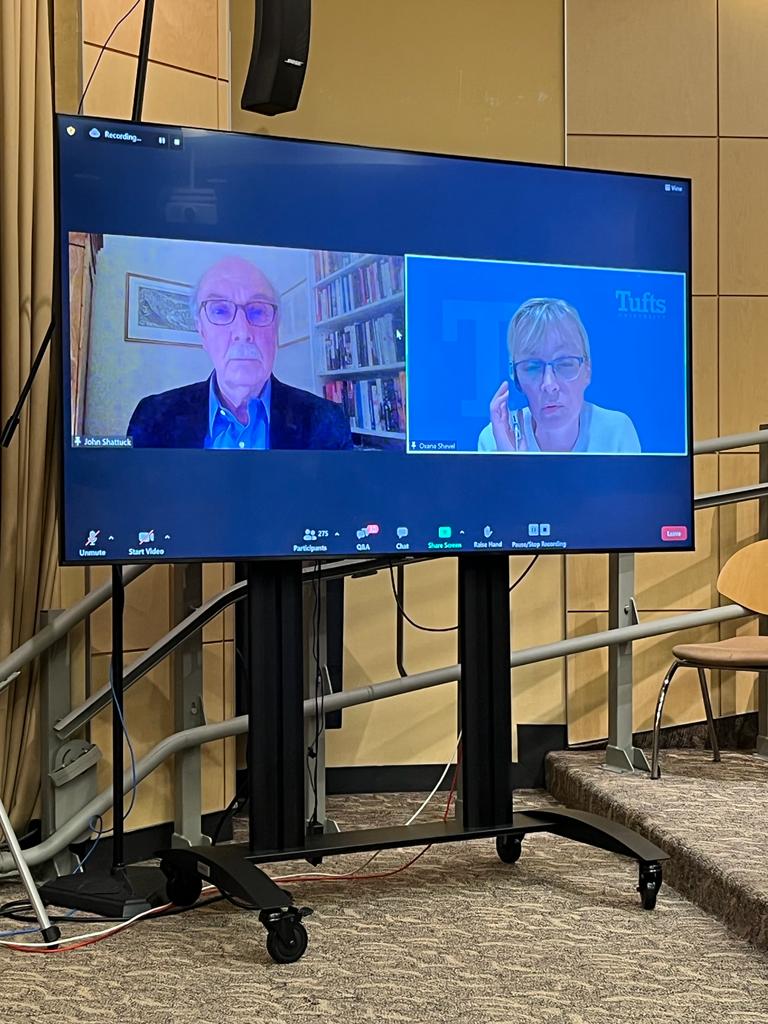
Fletcher and Tufts Faculty Meet in ASEAN to Discuss the Ukraine-Russia War
By Alex Thomas, MALD 2023 Candidate, The Fletcher School
On Wednesday, March 2, 2022, several members from the Fletcher and Tufts faculty discussed the unfolding events of the Ukraine-Russia war. The event was held in person with roughly 50 attendees at the ASEAN auditorium and over 300 people on Zoom. Moderated by Ian Johnstone, the panel consisted of Daniel Drezner, Oxana Shevel, Monica Toft, and John Shattuck. Each panelist was given five minutes to provide opening remarks and comments about the war between Russia and Ukraine within the context of their academic specialties.
Monica Toft provided the first of the opening remarks. As an expert in ethnic and religious conflict with experience as a Russian linguist for the U.S. Army, Toft outlined ten of the most important aspects of the conflict for the audience to understand. Of note, she highlighted the absence of the Russian air force in the conflict and mentioned how Russia’s invasion of Ukraine has marked the return of great power politics.
Daniel Drezner followed Toft’s opening remarks and focused heavily on the role and impact of multilateral sanctions on Russia and their ability to compel or deter further Russian aggression. He spoke on the Biden administration’s threats to sanction Russia for the past few months in the event of Russia’s invasion of Ukraine, as well as the importance of following through with the threats. He closed by exploring the ramifications that sanctioning Russia out of the global economy would have.

John Shattuck gave his opening remarks to the audience over Zoom. Shattuck focused on Putin’s two goals regarding the invasion of Ukraine; first, to rewrite the rules of the international order, and second, to push back against democracy. Shattuck argued that Putin is rejecting a law-based order of international relations and shifting towards one rooted in power, echoing Toft’s idea of the return to great power politics. Shattuck closed his remarks by underscoring how Biden’s top priority right now with the Russia-Ukraine war should be to avoid a nuclear confrontation with Russia at all costs.
The last panelist, Oxana Shevel, explored two scenarios with regards to the Russia-Ukraine war; one in which Putin succeeded in taking Ukraine, and the other in which he fails. She then spoke about the red line for the use of nuclear weapons against Ukraine and concluded by presenting the case for why the EU should streamline and accept Zelenskyy’s request for Ukrainian entry to the EU.

Following these remarks, Johnstone quickly outlined the legality of Russia’s invasion from an international law perspective and concluded that the thresholds that Putin used as justification had not been met. Additionally, the exceptions to the prohibition to the use of force under Article 2(4) of the UN charter did not apply to the current situation.
Following the opening remarks, members of the audience in person and over Zoom were allowed to ask questions to the panelists for roughly 30 minutes. Topics ranging from nuclear deterrence, and Russian nationalism to cyber-attacks and diplomatic offramps were further explored.
Wednesday marked the eighth day since Russia began its invasion of Ukraine.
